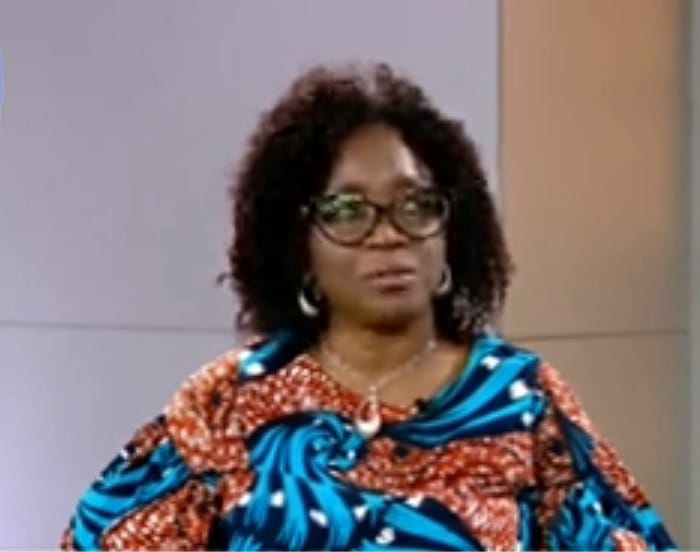Reactions have continued to trail the proposal by the Bola Tinubu-led government to disburse N8,000 to poor Nigerian households to mitigate the economic impact of the petrol subsidy removal.
Tinubu in a letter sent to the National Assembly to seek approval for the federal government to raise an additional N500 billion for the subsidy palliatives, disclosed that N8,000 would be given to 12 million households for six months.
Join our WhatsApp ChannelREAD ALSO: Subsidy: Tinubu Promises To Give 12 Million Households N8,000 For 6 Months
Reacting to that, Prof. Christine Ikpeme of the Department of Food Science and Technology, University of Calabar said the offer, even though it is an interim measure, is unsustainable given the rising costs of things in the country including food, housing, and transportation among others.

She said it is like treating a symptom while ignoring the disease causing the sickness.
“The issue of the N8,000 palliative is like treating the symptoms not treating the disease. It is like somebody having a headache, that could be induced by the disease conditions, but you’ve not gone to treat the agent causing the headache. That’s just what it means. N8,000 will not be able to ameliorate issues. It is really nothing when you compare it with what they have to spend.”
She said the money may not get to the ideal beneficiaries at the end of the day and advised that the government should restrategize by improving public infrastructure, public transportation and increasing the salaries of civil servants.
READ ALSO: Organised Labour Kicks Against Tinubu’s ₦8,000 To 12 Million Nigerians
“I think that the government needs to put infrastructure in place. There must be public transport system that would help people to commute from one place to the other at a cheaper rate,” she said.
Speaking on the Federal Government’s plan to achieve food security, Prof. Ikpeme, who appeared on Channels Television Sunrise Daily programme on Friday, said the government needs to focus on building infrastructure to prevent post-harvest losses which affect the availability of food.
According to her, this can be done by putting in place measures like a cargo rail system for transport, and refrigerated warehouses for farmers to store their farm products pending supply to markets.
On the proposal to give farmers access to 500,000 hectares of farmland for agriculture, Prof. Ikpeme said the government should ensure that the actual farmers get it not “political” farmers.
While advocating that farmers should be given money for seedlings as well, the food scientist also urged the government to give incentives like tax waivers among others, to manufacturers who are into food manufacturing.
READ ALSO: Food Security: Tinubu Declares State of Emergency
FG’s Policy on Food Security a Welcome Development
Also speaking in the programme, Rufus Idris, Country Director Heifer International said the Federal Government’s policy on food security is a good step in the right direction meant to boost food production which has been very low in the country.
He said the country has been in a serious state of emergency even before now, as the inflation rate has been on a steady increase for years now and the biggest contributor to that is food inflation.

In 2021, food inflation had at some point hit about 23 percent and prices of food jumped to around 20 percent which affected the common man. According to National Bureau of Statistics (NBS) data in March this year, food inflation was put around 25 per cent. “That’s a huge amount of food inflation rate to have in any country,” Idris retorted.
According to him, an average Nigerian today spends about 56.4 percent of their income on food alone. He noted that even before the fuel subsidy removal, prices of food have increased to more than 50 per cent.
“Think it is a welcome idea. It just shows that the government of the day is saying, yes, the previous government has prioritised agriculture as well, we need to do more to produce what we can use to feed ourselves locally and reduce how much we rely on the importation of food which is one of the causes of this disruption within the food system space.”
He said what the previous government did was simply to support smallholder farmers, but the current policy if properly implemented, would lead to the realization of food security.
He added that there is so much that needs to be done in the agricultural sector to boost food security as more than $22 billion is spent on food importation on a yearly basis.
He said that part of the plan of government to upgrade infrastructure for a storage system to reduce the wastage of agricultural products after harvest is a welcome development.
“Nigeria is one of the most under-mechanized countries in the world when it comes to agriculture. Our farmers struggle to use hoes and cutlasses to cultivate and harvest; we can’t compete that way. So, the policy has just said that they are going to invest more in mechanization.”
In the area of fertilizer subsidy which the policy also touches on, Idris said it is commendable. He pointed out that due to the ongoing war between Russia and Ukraine, the price of fertilizer has gone up more than 100 per cent making farmers struggle to buy to apply in their farms as Nigeria depends solely on imports.
He also advised that apart from giving N8,000 to poor Nigerian households, to cushion the effect of the fuel subsidy removal, the government should also do more to improve other infrastructure like power, construction of roads to improve logistics and assisting farmers in farm mechanization to increase output.
Victor Ezeja is a passionate journalist with seven years of experience writing on economy, politics and energy. He holds a Master's degree in Mass Communication.



















Follow Us